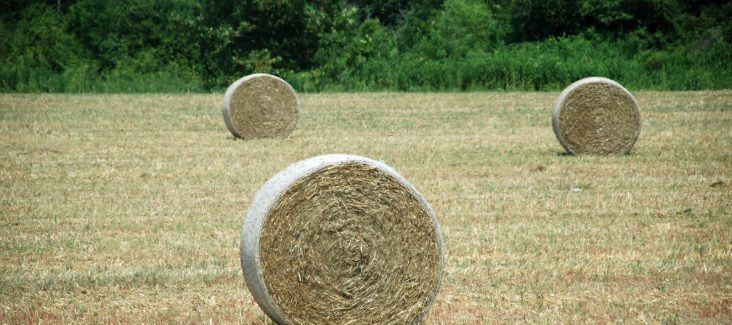Vote on federal Farm Bill could come by the end of the week
by December 11, 2018 4:23 pm 375 views

The newly proposed Farm Bill will include a provision that legalizes industrial hemp and does not include work requirements for the Supplemental Nutrition Assistance Program known as SNAP. Dealmakers from both the U.S. House and Senate were able to reach a compromise bill that will now be voted on by both chambers this week, and President Donald Trump could sign it into law as early as Friday.
The $867 billion package mirrors the current Farm Bill in most ways and would last for 10 years. Trump praised the compromise bill Tuesday during a meeting at the White House.
“The Farm Bill is moving along nicely,” Trump said.
The response to the compromise bill was largely positive. The bill has been lauded as a win for House Democrats who opposed the changes to SNAP that were included in that body’s version of the bill. It was only passed with a margin of two votes, along party lines. The Senate version didn’t contain changes to SNAP. U.S. Sen. John Boozman, R-Ark., said he’s pleased an agreement had been reached.
“This is welcome news for farmers, ranchers, rural Americans and consumers. farmers and ranchers across the country have been dealing with low commodity prices, high input costs, volatile weather events and an uncertain trade environment. This farm bill will bring much-needed certainty and predictability to farm policy for the next five years,” Boozman said. “We worked hard, in a bipartisan manner, to reach consensus on a final version that will deliver for those who earn their livelihood in the agricultural economy, protect key risk management tools and maintain strong farm policy for producers of all stripes.”
Several organizations with ties to Arkansas were supportive of its passage. The American Farm Bureau endorsed it along with the Delta Caucus. DC Director Lee Powell praised the compromise.
“We applaud the bipartisan Farm Bill Conference Report and urge all nutrition advocates to endorse final passage. This will scrap a provision that would have kicked some deserving people off the program and delete earlier proposed cuts of $20 billion over 10 years in SNAP funding. SNAP is a vital safety net for 40 million Americans who struggle with food insecurity,” Powell said.
Hemp could become a significant agricultural crop in the coming years. Analysts with CNBC estimate it could be a $20 billion industry by 2022. Hemp is the fiber and seed portion of the Cannabis Sativa L. plant, according to hemp.com. The flower portion is marijuana. The versatile agricultural product is used in oils, plastics, protein powders, drinks, food, and others.
The battle over final passage of the bill will occur in the House. It narrowly passed 213-211 earlier this year, and not a single Democrat supported the measure. The bill would have cut about $20 billion during the next 10 years from the SNAP. Critics argued the cuts could have caused up to 2 million people to lose SNAP benefits. House Republicans wanted to spend billions less on SNAP than was spent on the previous farm bill that started in 2014, according to the CBO. It cost about $70 billion last year, or about 80% of the annual outlay, according to the CBO. It offers food assistance to about 44 million Americans. Arkansas has more than 600,000 people on the SNAP rolls, according to the U.S. Census Bureau. An estimated $489 billion has been spent on the current farm bill.
Among the proposed changes to SNAP were revisions to able-body worker requirements. Most able-bodied adults from the ages of 18-49 without dependents are not eligible for SNAP benefits unless they work at least 20 hours per week, according to the United States Agriculture Department. One provision in the House bill would have raised that age to 59 by 2021 and require them to either be working or in a training program for 20 hours per week. That standard would have risen to 25 hours per week by 2026, according to the bill.
The Farm Bill was first created during the Great Depression in 1933. It includes farm aid, the federal food stamp program, conservation programs, and other programs impacted by agriculture. It’s typically revised every five years.
